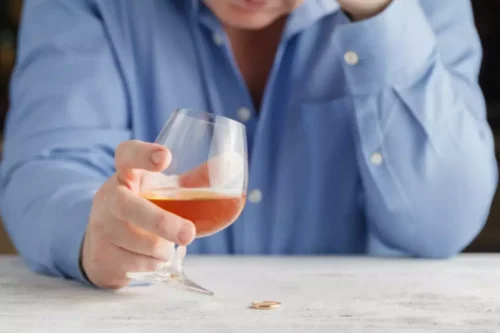
Advice on diet, breathing and candida infections is given in books by Shirley Trickett quoted at the end of this chapter. It is usually inadvisable to stick to a strict exclusion diet; with a normal balanced diet and sensible general health measures, including regular exercise, gastrointestinal symptoms due to withdrawal gradually abate. It may take a long time for these people to regain, or attain, full confidence in themselves. These include anxiety, insomnia, depression, various sensory and motor symptoms, gastrointestinal disturbances, and poor memory and cognition. Probably many factors are involved, some directly due to the drug and some to indirect or secondary effects (See Table 4).
Type of Benzodiazepine Used
It comes nearly three weeks after the conclusion of the 2024 Democratic National Convention, in which Harris formally accepted the party’s nomination after a turbulent month kickstarted by Biden’s withdrawal. Patients with cognitive impairments as a result of alcohol dependence should be provided with ongoing vitamin B1 (thiamine) supplements. Withdrawal management rarely leads to sustained abstinence from alcohol. After withdrawal is completed, the patient should be engaged in psychosocial interventions such as described in Section 5.

4. WITHDRAWAL MANAGEMENT FOR BENZODIAZEPINE DEPENDENCE
- This dependence may lead to a difficult withdrawal if the person chooses to stop taking the drugs.
- Every 1 to 4 weeks after that, they’ll reduce your dose by another 5% to 25% of the original dose.
- This may be due to a rebound effect on appetite, since benzodiazepines have been shown to increase appetite in animals.
- Providing withdrawal management in a way that reduces the discomfort of patients and shows empathy for patients can help to build trust between patients and treatment staff of closed settings.
If you prefer someone else, any primary care physician or psychiatrist can help you taper your dose. If your reasons for quitting benzodiazepines are that you were misusing them or unable to control your use, then you may require further substance severe benzodiazepine withdrawal syndrome use treatment. This is particularly true if you are also giving up other substances, like alcohol or opioids. Benzodiazepine withdrawal can be managed with a gradual dose reduction, which will cause milder symptoms that come and go in waves.
Understanding Benzodiazepine Withdrawal
- These drugs tend to be readily available because they are used so routinely in the treatment of a variety of disorders and symptoms.
- Such measures may give only temporary relief at first, but if practised regularly can speed the recovery of normal muscle tone – which will eventually occur spontaneously.
- Research indicates that using benzos for longer than three to four weeks can lead to physical dependence and withdrawal.
- Possible factors contributing to protracted symptoms are outlined in Table 4.
- Heartbeats become audible and there may be a hissing or ringing sound in the ears (tinnitus – see below).
While benzos can be very effective in treating anxiety, it’s important to keep in mind that they are not intended to be taken on a long-term basis. Using these drugs for an extended time period drastically increases the risk of tolerance, dependence, and addiction. A benzo detox center is staffed with experienced doctors who can safely taper you or your loved one off benzos. Tapering helps you gain relief from symptoms that can otherwise be painful and intense so you can benefit from a more comfortable recovery.
- The length of time someone has been taking benzodiazepines plays a significant role in withdrawal.
- The drug isn’t approved for this use, but it has been shown to be helpful in treating alcohol withdrawal.
- There are three possible phases for benzo withdrawals, each with an estimated timeline.
- The definition of dependency is having withdrawal symptoms when you stop taking it.
- Benzodiazepines are a class of psychoactive drugs commonly prescribed for medical conditions such as anxiety, insomnia, and seizure disorders.
When is the presidential debate?

By following the withdrawal schedules outlined in Chapter II, you can be confident of avoiding these complications. The range and intensity of benzo withdrawal symptoms is influenced by factors such as duration and dosage of usage. Individuals who have used benzos for shorter periods may experience milder symptoms, but the risk of severe withdrawal reactions still exists. Studies indicate that around 40% of those who use benzos for more than six months suffer from moderate to severe withdrawal symptoms. Since benzos help you relax and feel more calm, abruptly stopping the drugs can lead to worsened anxiety accompanied by shaking and tremors — common side effects of some anxiety disorders.

During benzo withdrawal you may feel jittery and shaky for the first several days after quitting, though these symptoms will gradually taper off as your body recovers from benzo dependence. Tremors and shaking are generally caused by problems in neurological function such as those that stem from benzo abuse and withdrawal. With benzo addiction, the brain and body grow accustomed to certain doses of the drugs, and require those doses at all times to remain stable and prevent users from feeling sick.
The drug has to be infused intravenously and is very short acting so that symptom relief is only temporary. The drug cannot be given to a person who is still taking benzodiazepines as it precipitates an acute withdrawal reaction. Such symptoms may be partially alleviated by relaxation techniques; some motor and sensory systems may respond to carbamazepine (Tegretol) and motor symptoms may respond to propranolol (Inderal). Despite these factors, protracted anxiety symptoms, including agoraphobia and panics, do tend to subside gradually and rarely last more than a year. The process may be hastened by good psychological support and by the measures described under acute anxiety symptoms.